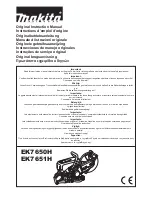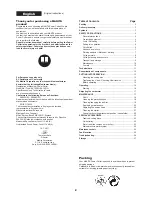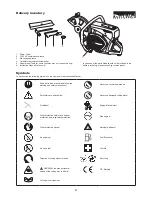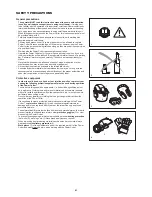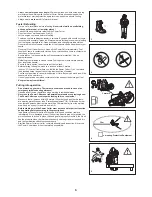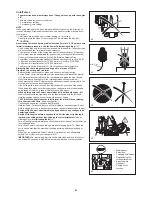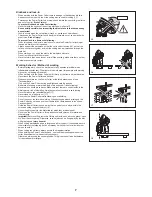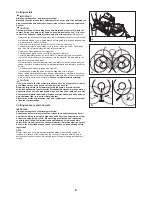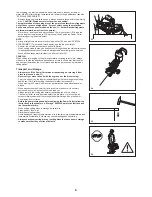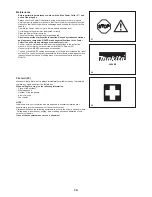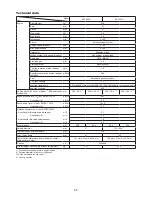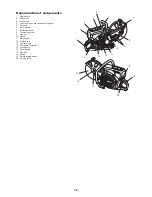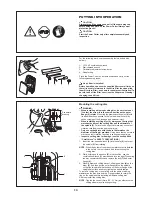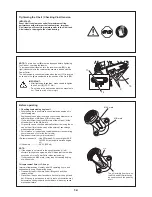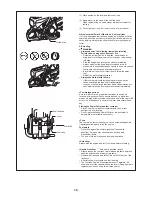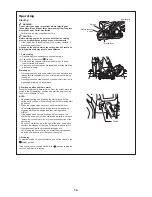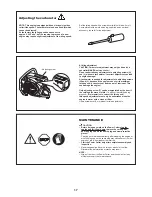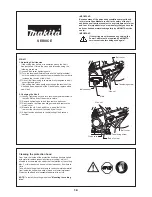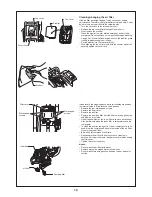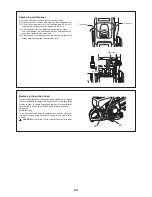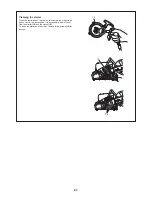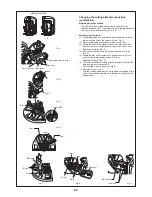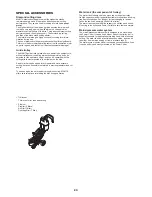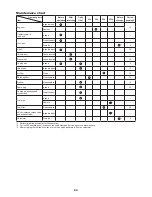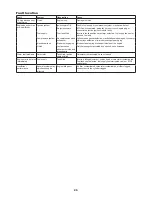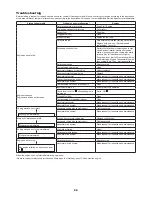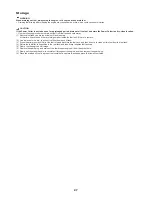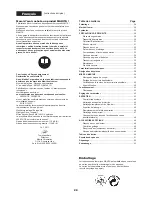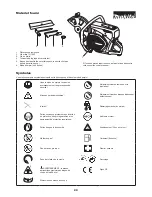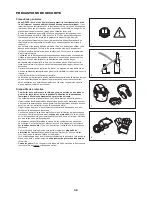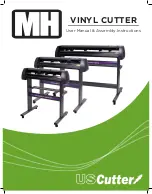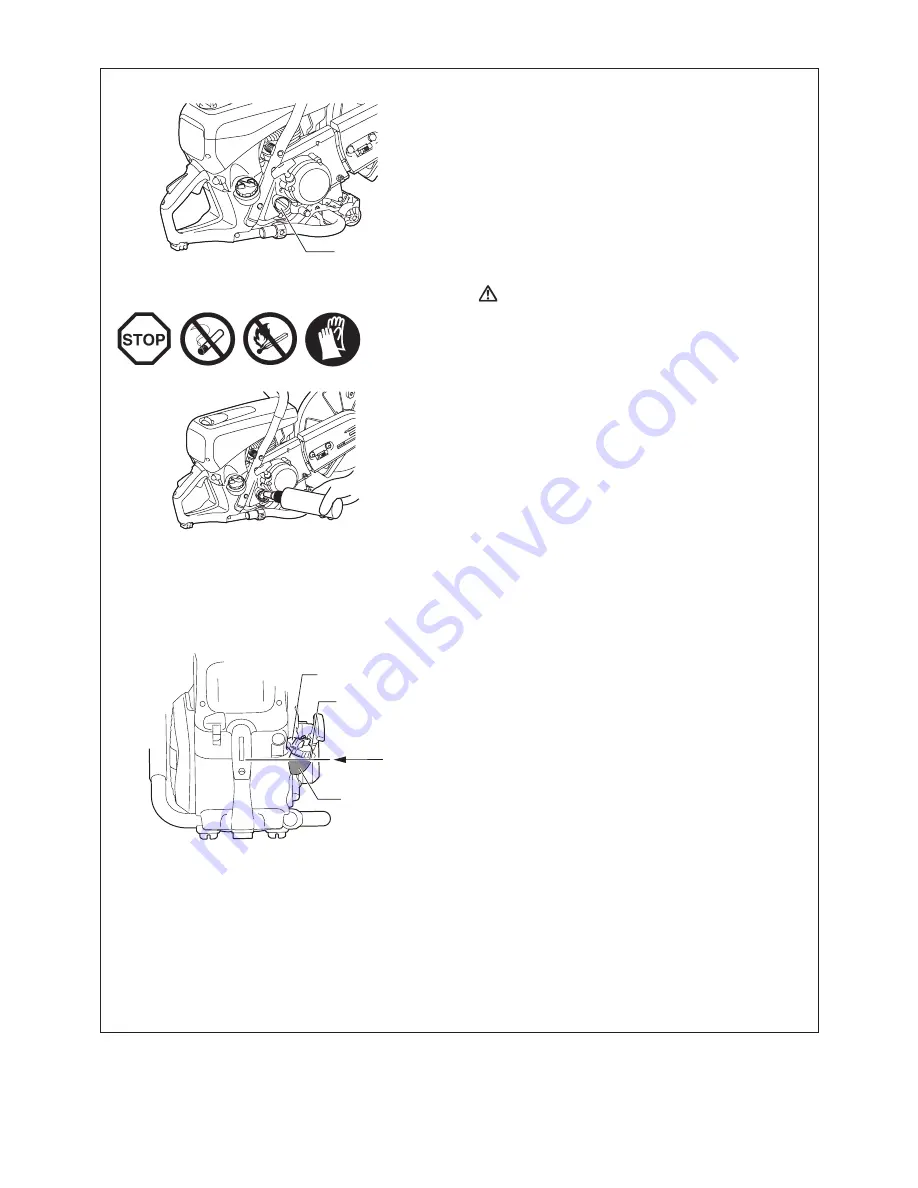
15
(1) Place engine on the level and remove oil cap.
(2) Replenish oil to the base of the oil filling neck.
When replenishing oil, use a proper lubricant container for
refilling.
(3) Firmly tighten oil cap. If oil cap is loose, oil may leak out.
Oil replacement Point 2 <What to do if oil is spilled>
If oil is spilt between fuel tank and engine, and the Power Cutter
operated, oil will be sucked in via the cold air intake, which may
cause dirtying. Always wipe off spilt oil before using the power
cutter.
2. Refueling
WARNING:
•
Always observe the following items when refueling.
Failure to do so may cause flames or fire.
• Refuel away from flames. In addition, never smoke or
bring any form of flame near to fuel or power cutter during
refueling.
• Stop the engine and let it cool down before refueling.
• Always open fuel tank cap slowly to release internal
pressure in a controlled manner. Failure to do so may cause
fuel to spray out because of internal pressure.
• Be careful not to spill fuel. If fuel is spilt, fully wipe away
fuel.
• Refuel in a well-ventilated location.
•
Always handle fuel with full care.
• If fuel comes into contact with skin and/or eyes, it may
cause an allergic reaction and/or inflammation.
In cases of such allergic reactions and/or inflammation, etc.,
seek medical advice from a specialist doctor immediately.
<Fuel storage period>
As a rule, fuel held in a proper fuel container, in a shaded
location, with good ventilation, should be used up within four
weeks. If a proper fuel container is not used and/or the cap is left
off, etc., and the season is summer, fuel may deteriorate in one
day.
Storing the Power Cutter and fuel container
• Store Power Cutter and fuel container away from direct
sunlight in a cool location.
• Do not leave fuelled up Power Cutter or fuel container in
automobile or automobile trunk (boot).
<Fuel>
The engine is a four-stroke engine, so use automobile gasoline
(regular gasoline/petrol) to run the engine.
Fuel points
• Do not use a gasoline mixture (engine oil mixed with
gasoline). Doing so may cause carbon build up and
mechanical failure.
• The use of old fuel may cause poor engine startup.
<Refueling>
Always stop the engine and let it cool down before refueling.
<Usable Gasoline>
.....
Automobile gasoline (petrol)
• Slightly loosen the fuel tank cap to release pressure and thus
equalize external and internal air pressure.
• Remove fuel tank cap and refuel. (Do not fill to the top of the
tank neck.)
• After refueling, firmly tighten on fuel tank cap.
• The fuel tank cap is a consumable product. Therefore, if it
shows wear or other abnormalities, replace it. (Rough guide to
replacement is once every two or three years.)
Oil tank cap
Fuel tank cap
Fuel tank
Fuel MAX
Level

